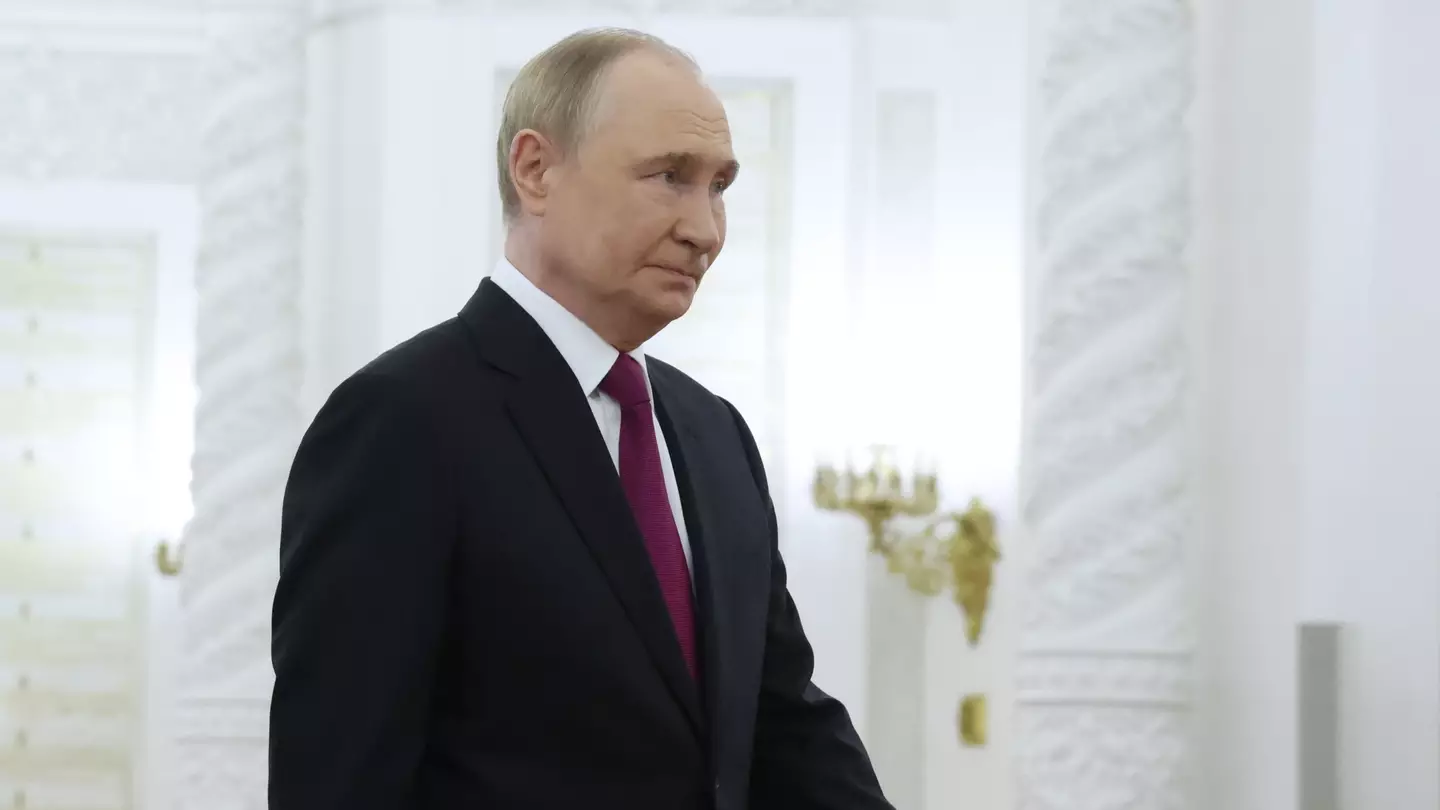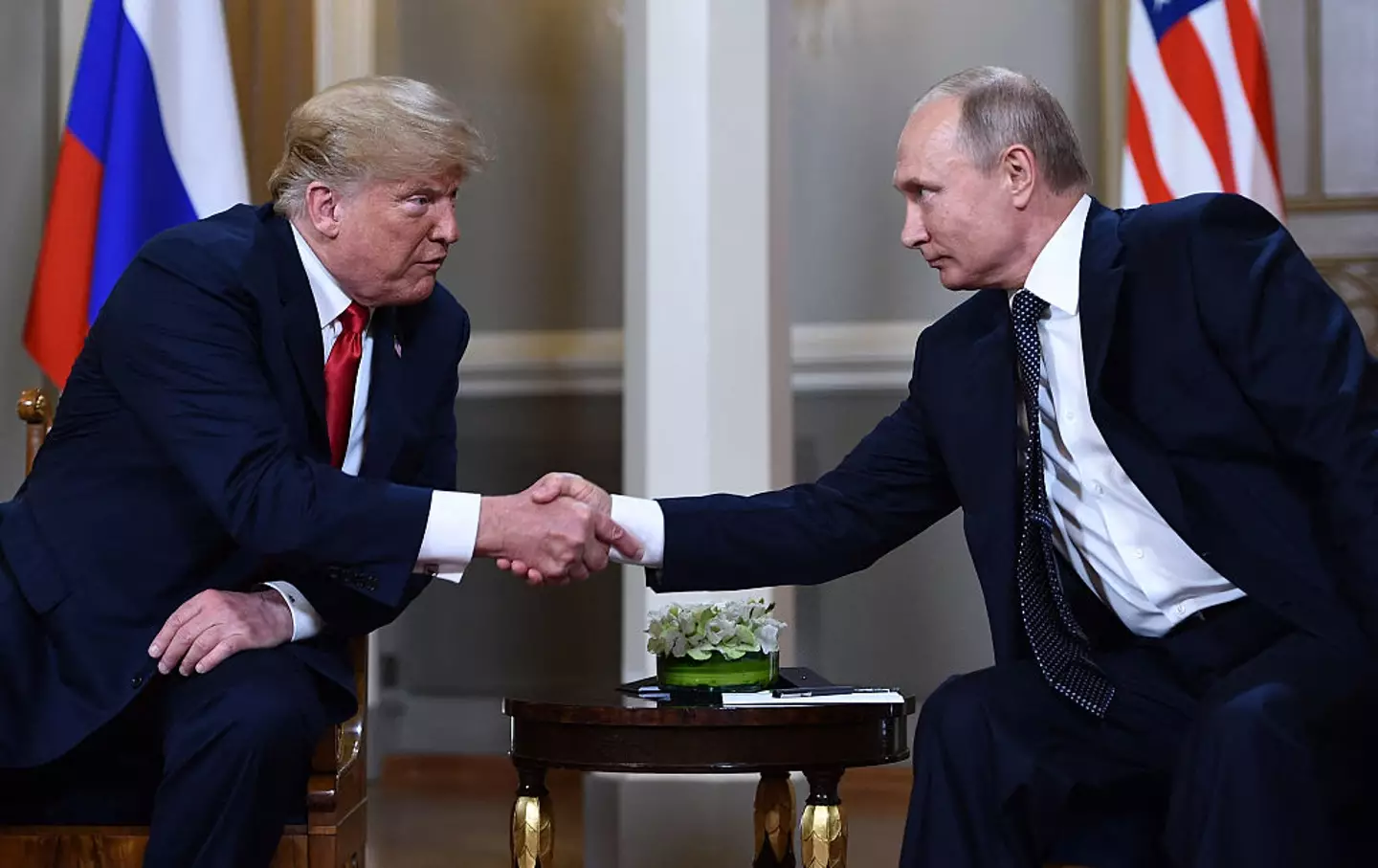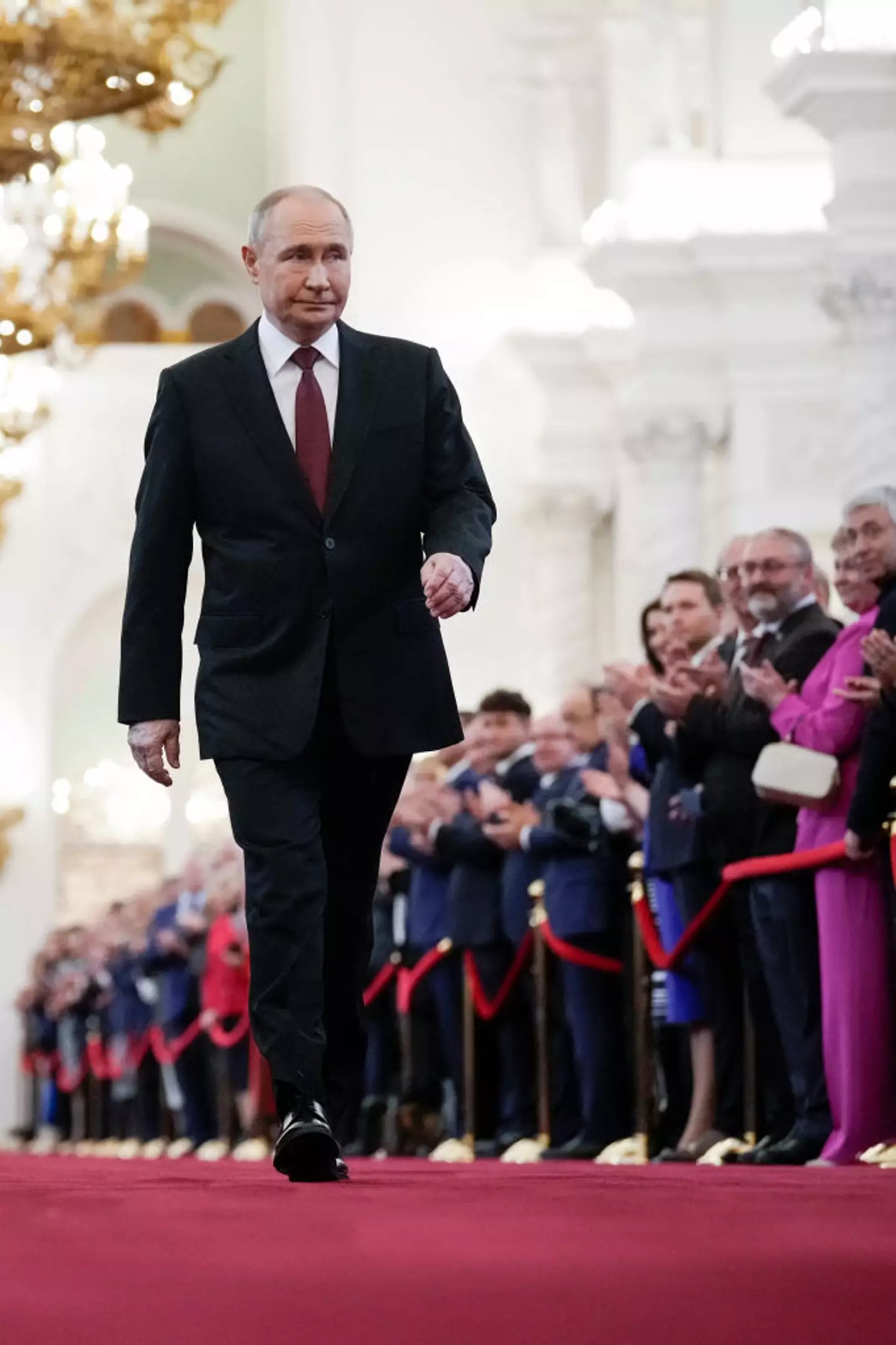
You may have noticed that Vladimir Putin likes to walk with one arm by his side when meeting various world leaders.
And the Russian President is likely to give Donald Trump the same treatment when they meet face-to-face very soon.
The two very powerful men are set to meet to discuss the Russia-Ukraine war at a US military facility in Alaska on Friday (15 August).
Trump, 79, said during a virtual meeting with European leaders on Wednesday (13 August) that he will threaten Moscow with tougher sanctions if they refuse to end the war in Ukraine.
Advert
As reported by Al Jazeera, the Republican leader warned of 'very severe consequences' if Putin, 72, isn't going to listen.
Trump also told reporters at the Kennedy Center that he hopes the first meeting with Putin goes well, because he doesn't anticipate a second one.

"Now, there may be no second meeting," he said. "Because if I feel that it’s not appropriate to have it because I didn’t get the answers that we have to have, then we’re not going to have a second meeting."
As always, we will just have to wait and see what happens tomorrow, but if one thing's for sure, the leader of Russia will probably do his one-armed walk.
Rather than the result of illness or injury, it may be due to a behavioural adaptation rooted in his KGB training.

It's a deliberate posture designed to keep his weapon close and maintain readiness.
Although the walk may look a little unsettling, or even theatrical, the chances are that it's a case of a military ingrained habit.
Putin was a KGB foreign intelligence officer for 16 years, and served until 1991, when he resigned to begin his political career.
So, a 2015 study published in the British Medical Journal coined the term 'gunslinger’s gait' to describe the unusual arm movement.

“According to this manual, KGB operatives were instructed to keep their weapon in their right hand close to their chest and to move forward with one side, usually the left, presumably allowing subjects to draw the gun as quickly as possible when confronted with a foe,” the researchers, based in Portugal, Italy, and the Netherlands, wrote.
Bastiaan Bloem, a professor of movement disorder neurology, called the study 'unusual' in a 2015 interview with AFP, but warned that 'there is a very serious message to it' about neurological observation.
“What we are putting forward, but very cautiously, is a new hypothesis,” he said.
Topics: Donald Trump, Vladimir Putin, Ukraine, Russia